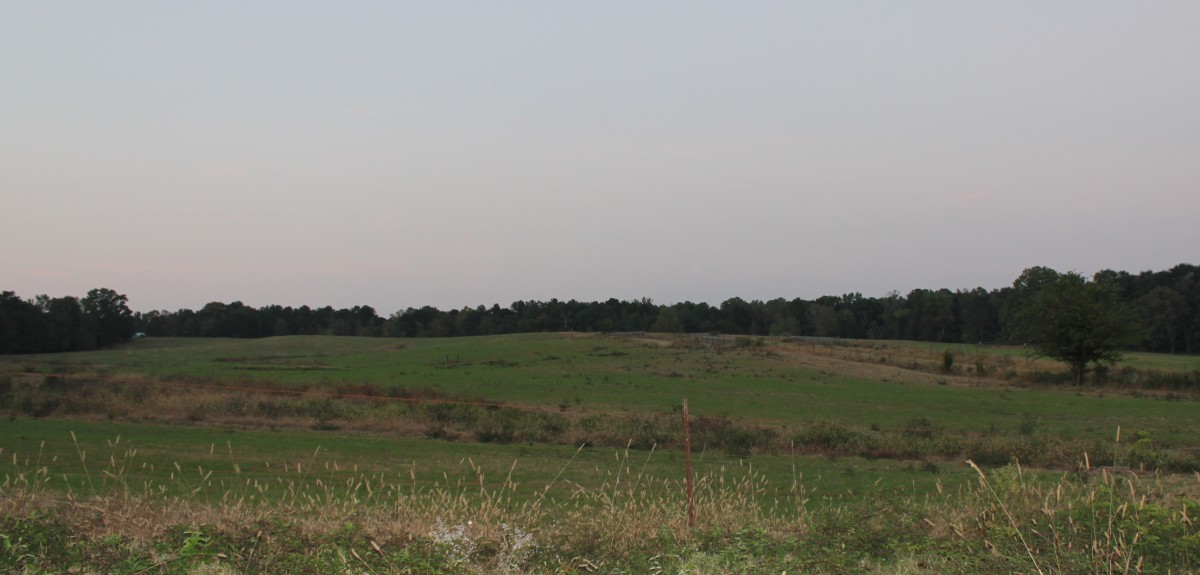 |
| Map of the Vicksburg campaign |
After abandoning Jackson, Mississippi to the
advancing Federals, Joseph E. Johnston's plan was to unite with
Pemberton, and force Grant to attack them. But Grant did not stick
around Jackson long enough for Johnston to march to Vicksburg.
Johnston ordered Pemberton to march to join him. But Pemberton choose
to march east to attempt to capture Grant's supplies. When Johnston
repeated his order, Pemberton turned around and began marching the
other way. But before he could get out, Grant was upon him.
Pemberton was caught at Champion's Hill on May
16th, 150 years ago today. Fighting broke out at 7 am. The
Confederates held a strong position, and Pemberton arrayed his men
and artillery along the top of a hill. On the Union left and center,
McClernand engaged in skirmishing, waiting for the situation to
develop. Grant sent Hovey's division from McPherson in on the right
to attack the rebels. One soldier remembered:
The fire grew heavier, and the air seemed too hot to be borne. "Forward!" came a second order, all along the line—" Forward! double quick!" Everybody shouted "double quick," as the noise was becoming terrific. ... A moment more and we were at the top of the ascent, and among thinner wood and larger trees. The enemy had fallen back a few rods, forming a solid line parallel with our own; and now commenced, in good earnest, the fighting of the day. For half an hour we poured the hot lead into each others' faces. We had forty rounds each in our cartridge-boxes, and, probably, nine tenths of them were fired in that half hour. For me it was the first real "stand up and fight," as the boys called it, of my life. Of skirmishes, I had seen many, and had been under fire; but this was a real battle, and what Grant himself might have called "business." I tried to keep cool, and determined to fire no shot without taking aim; but a slight wound in the hand ended my coolness, and the smoke of the battle soon made aim-taking mere guessing. ... Hotter and hotter grew the fight, and soon this same boy cried: "Look—look behind us," and, sure enough, the regiment to our left had disappeared, and we were flanked.

"Stop! halt! surrender!" cried a hundred rebels, whose voices seem to ring in my ears to this very day. But there was no stopping, and no surrender. We ran, and ran manfully. It was terribly hot, a hot afternoon under a Mississippi sun, and an enemy on flank and rear, shouting and firing. The grass, the stones, the bushes, seemed melting under the shower of bullets that was following us to the rear. We tried to halt, and tried to form. It was no use. Again we ran, and harder, and farther, and faster. ... Like ten thousand starving and howling wolves the enemy pursued, closer and closer, and we scarcely dared look back to face the fate that seemed certain. Grant had seen it all, and in less time than I can tell it a line of cannon had been thrown across our path, which, as soon as we had passed, belched grape-shot and canister into the faces of our pursuers. They stopped, they turned, and they, too, ran, and left their dead side by side with our own.
 |
| A modern picture at the same location as the above sketch. Source. |
The fighting on the right continued in this
fashion, with one line driving the other back and forth. A Federal
officer out to reconnoiter discovered that Pemberton's left flank was
in the air. But the information was not communicated to Grant, so no
action was taken. If he had moved on the flank he could have got in
Pemberton's rear and completely destroyed the Confederate army. Grant
missing that opportunity didn't assure Confederates safety. Pemberton
was reinforcing his left from his right, which was lightly attacked,
but when he ordered Loring, who had caused Stonewall Jackson trouble
in the Shenandoah Valley, to move to reinforce the left, he refused.
Without Loring's troops to aid them, when Grant attacked again, the
line crumbled. Pemberton ordered his army to fall back, which they
were able to do successfully. It had been a costly battle. The
Confederates had lost 381 killed, 1,018 wounded and 2,441 captured.
The Federals 410 killed, 1,844 wounded and 187 captured. This was a
very important battle. If Pemberton had won, Vicksburg would have
been saved. The battle was lost through the failure of Loring to obey
orders. The Federals were not without their problems as well.
McClernand had not done his share of the fighting and he had not
suffered nearly the causalities as McPherson.






0 comments:
Post a Comment